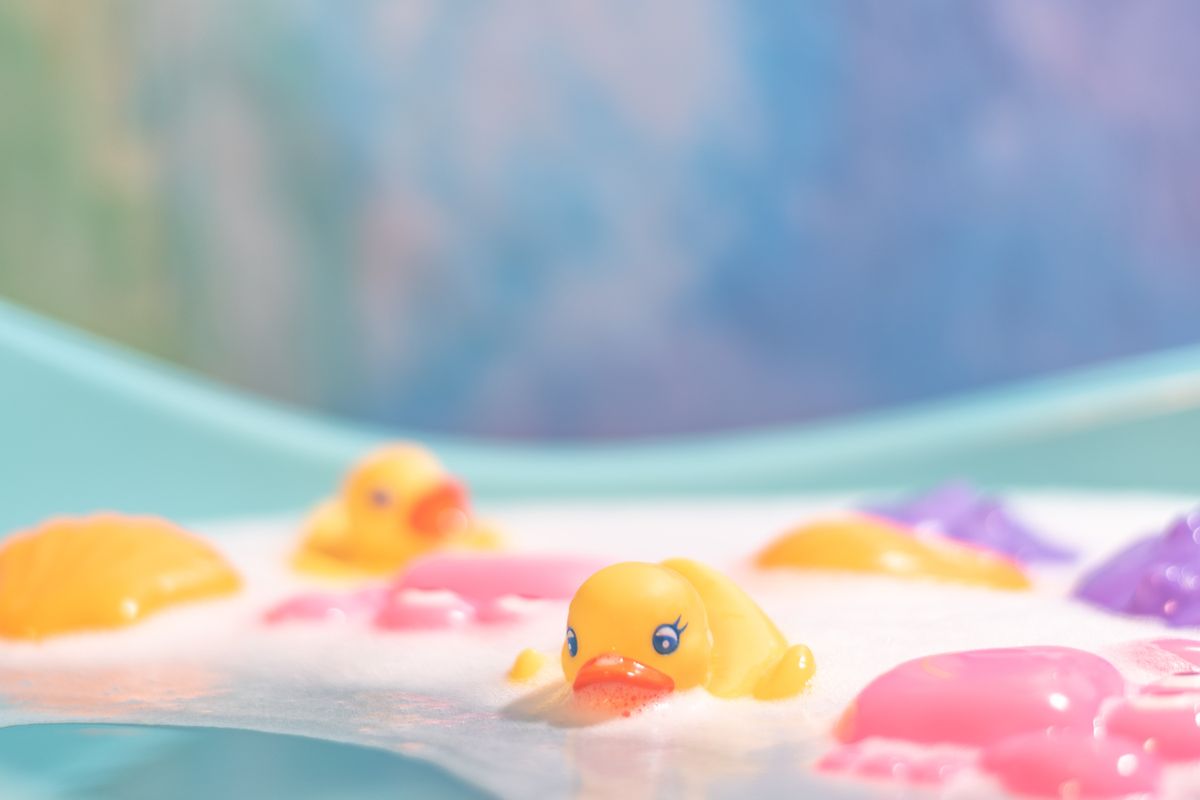Ask Ashley: How do I look after myself when there are other important priorities?
Everyone needs me but putting myself first makes me feel guilty. How do I look after myself too?

Welcome to the Ask Ashley advice column! On the second Wednesday of every month, I answer a question from my subscribers, consulting clients, or social media followers on their biggest productivity challenges.
Have a question you want to submit for another edition of Ask Ashley? Shoot me an email. Questions will be anonymized and may be edited for clarity.
Dear Ashley,
Everyone needs me — my kids, my parents, my spouse, my customers, my employees, my friends, everybody. I’m exhausted, but putting myself first makes me feel guilty. People say, “Put your own oxygen mask on first,” but how do you actually do that?
How do I look after myself when there are all of these other important priorities?
— Bubble Baths Aren’t Cutting It
Dear Bubble Baths Aren’t Cutting It,
What you are experiencing is something I hear all the time. You have more priorities than time and you are not included in those priorities. Turns out that’s a good way to lead yourself down the path to full-on burnout!
There are three assumptions in your questions that need to be countered.
Let’s break them down:
1. Assumption: You are not an important priority (or at least lower on the priority list than all the others)
Reality: You are as important as all the other priorities. It’s a disservice to you AND others when you don’t consider yourself.
You asked “how do I look after myself when there are all of these other important priorities” as though you are not on the list at all.
But consider this: how can you expect to do your best work and give your attention to those you care about when you are running on empty?
As I have said before:
- No one makes good decisions when they are tired.
- No one is productive when they are exhausted.
- No one does a great job of tolerating the annoyances of the day when they are drained.
- No one is creative or inspired when they are low energy.
When you spread yourself too thin you aren’t able to show up fully for any of the people or responsibilities in your life.
You deserve to feel good, just for you
Even more important than engaging with the people who need you is to understand that you deserve to feel good and be a priority, just for you. You are important. You have goals and aspirations and desires that are no less important than the people you care about.
You would never deny someone you care about the time to recharge and do things that are good for them. Why would you deny yourself? Martyrdom doesn’t look good on anyone.
When you don’t prioritize yourself it’s to the detriment of you AND the people who need you.
2. Assumption: Self-care is selfish, indulgent and only for special occasions
Reality: Self-care (aka self-maintenance) is an everyday requirement, not an occasional luxury.
There is a misnomer about what it means to take care of yourself. Even the words “self-care” have weird and misleading connotations that conjure images of days at the spa and beach vacations. Those images, while included as forms of self-care, are limiting and don’t represent the spirit of what it means to actually take care of yourself.
Really, when you think about self-care, what you need to think about is self-maintenance.
Here’s a (terrible) metaphor:
Without regular washes, oil changes, washer fluid top-ups, belt replacement, winterization etc. (...I reached the end of my car maintenance knowledge) your car will start to break down and eventually you will be on the roadside curing yourself and calling AMA.
You are the same. Without regular maintenance, you start to break down and end up burned out, and worst case, in a doctor's office.

Reframe the idea of self-care as indulgent or selfish into a competitive advantage in life. The better you feel, the better prepared you are to engage with all the people you listed, as well as deal with the inevitable ups and downs of life.
You are not a bottomless pit of resources. You can’t give and give and give without taking the time to do that regular maintenance.
And when I say regular, I mean every day. Bubble baths are well and good but they will indeed not cut it on their own. It’s similar to how one good sleep after weeks of bad sleeps won’t be enough to make you feel rested. When you are already running on fumes, a small break here will not fill your tank.
Self-maintenance can’t be an occasional luxury. It has to be built into the normal rhythms of your life.
Self-care comes in many forms but starts with the trifecta of:
- Consistent sleep: Without a good sleep, everything else suffers.
- Regular exercise: Walk, stretch, some kind of fitness, and sports are key to maintaining physical and mental health.
- Balanced diet: Eat well. Don’t skip meals. Enjoy food and drink, just in moderation.
After sleep, movement, and diet, think about different things that recharge you. This might be quiet time with a book, doing a puzzle, a walk with a friend, etc. What it is doesn’t matter, only that you prioritize it as part of your days and weeks to refill your energy.
You gain the competitive advantage to manage whatever life throws at you AND enjoy life more along the way when you prioritize yourself.
3. Assumption: You need to be available to everyone at all times and if you aren’t, you are not a good parent, spouse, employer, etc.
Reality: You do not have to be available at all times. In fact, it is to everyone’s benefit for you to NOT be available sometimes.
I have 3 words for you: boundaries, boundaries…and boundaries.
I wrote a three-part series on how to set boundaries specific to email, meetings, and availability.
- 7 Ways to Set Email Boundaries and Lift the Curse of Immediacy
- 8 Ways to Set Boundaries Around When You Schedule and Accept Meetings
- 7 Ways to Set Availability Boundaries and Reduce Interruptions
There are parts of these that will address different groups of people who are all vying for you.
When it comes down to it (and the entire purpose of setting boundaries) you teach other people how to treat you. When you give, and give, and give, without ever taking, others assume that it is ok to keep asking.
And then you give until there is nothing left and you feel like you do now.
When you set boundaries, you tell others how you want to be treated and set clear expectations for what you will and won’t do under different circumstances. Need some focused time to work on a project without interruptions? Block your calendar from any new meetings. Don’t have time for another commitment? Say no (or not now)!
Another thing to consider is when you are not available at all times, it actually empowers others in your life to make their own decisions and take action without needing you every step of the way. If you are not immediately available to answer their questions or help them with something, they have to do some critical thinking and find a solution on their own.
When you set boundaries you are able to make space for self-maintenance and recharge time.

No one wants to be burnt out. It makes everything harder. As I mention in my article, Why does burnout happen? You do it to yourself, you don’t have control over everything, but you do have control over the choices you make about what you prioritize, including yourself.
You can be both someone who is needed and helps fulfill the needs of others, AND someone who has needs that need to be fulfilled. In fact, you have to be both to stay healthy.
Take a breath. Take a step back. And see where you can reprioritize yourself into the mix of all those people who need you. You need you too!
Do you need some help to reprioritize yourself? Reach out for a free consultation.
Share
Ashley Janssen

Productivity consultant, writer, speaker, serial entrepreneur, chaos calmer, introvert, cat-lady. Lover of books, fitness, old fashioned’s, basketball, and video games.
Follow me on
Twitter
or
LinkedIn.
Hire me for
1 on 1 productivity consulting
or
speaking.
Related articles

What If Being Lazy Was a Good Thing?

How to Winterize Your Life


Comments ()